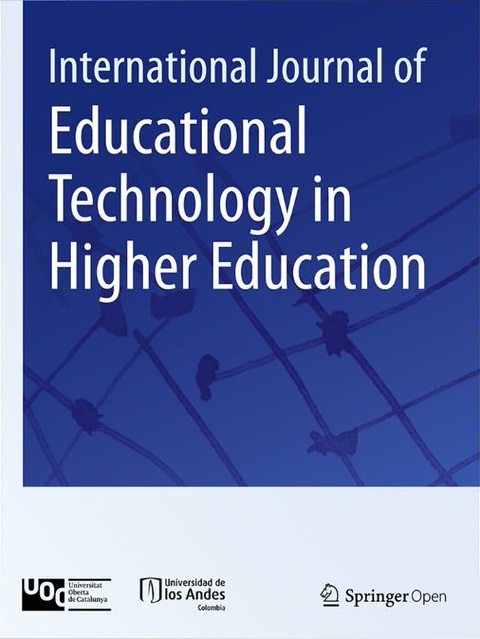Teachers’ Perceptions of STEAM Education
IF 16.7
1区 教育学
Q1 EDUCATION & EDUCATIONAL RESEARCH
International Journal of Educational Technology in Higher Education
Pub Date : 2023-10-23
DOI:10.46328/ijte.563
引用次数: 0
Abstract
The support of academics, professionals, and researchers from the most diverse scientific areas to STEAM education is due to the strong impact it has on preparing citizens for a world of continuous scientific and technological development. Among its benefits, we highlight the improvement of critical, innovative, and creative thinking; the development of problem-solving, collaborative, cooperative, and communication skills; the gain of self-confidence, self-motivation, empathy, and resilience. However, the pace of implementation is not the same in all world regions. Developing and less developed countries have limitations of assorted nature in almost all areas of scientific-technological knowledge. With a consensus on the impact of STEAM Education on the progress of any society, its implementation in developing countries becomes fundamental and urgent. The study described here focuses on Cape Verdean teachers' perception of STEAM education and its integration into their pedagogical practices. It includes the analysis of data collected via a questionnaire adapted from one developed by the community for science education in Europe, SCIENTIX, and reported information on official documents. The findings reflect not only teachers' ideas and beliefs about STEAM education, but also their pedagogical approaches, the resources they (do not) use, and the obstacles they face.教师对STEAM教育的看法
来自最不同科学领域的学者、专业人士和研究人员对STEAM教育的支持,是因为它对公民为一个不断科学和技术发展的世界做好准备产生了强大的影响。在它的好处中,我们强调了批判性、创新性和创造性思维的提高;解决问题、协作、合作和沟通技巧的发展;获得自信、自我激励、同理心和适应力。然而,世界各区域的执行速度不尽相同。发展中国家和欠发达国家在几乎所有科学技术知识领域都有各种性质的限制。随着人们对STEAM教育对任何社会进步的影响达成共识,它在发展中国家的实施变得至关重要和紧迫。这里描述的研究重点是佛得角教师对STEAM教育的看法及其与教学实践的结合。它包括分析通过一份调查问卷收集的数据,该调查问卷改编自欧洲科学教育界为SCIENTIX开发的一份调查问卷,以及官方文件报告的信息。调查结果不仅反映了教师对STEAM教育的想法和信念,还反映了他们的教学方法、他们(不)使用的资源以及他们面临的障碍。
本文章由计算机程序翻译,如有差异,请以英文原文为准。
求助全文
约1分钟内获得全文
求助全文
来源期刊
CiteScore
19.30
自引率
4.70%
发文量
59
审稿时长
76.7 days
期刊介绍:
This journal seeks to foster the sharing of critical scholarly works and information exchange across diverse cultural perspectives in the fields of technology-enhanced and digital learning in higher education. It aims to advance scientific knowledge on the human and personal aspects of technology use in higher education, while keeping readers informed about the latest developments in applying digital technologies to learning, training, research, and management.

 求助内容:
求助内容: 应助结果提醒方式:
应助结果提醒方式:


